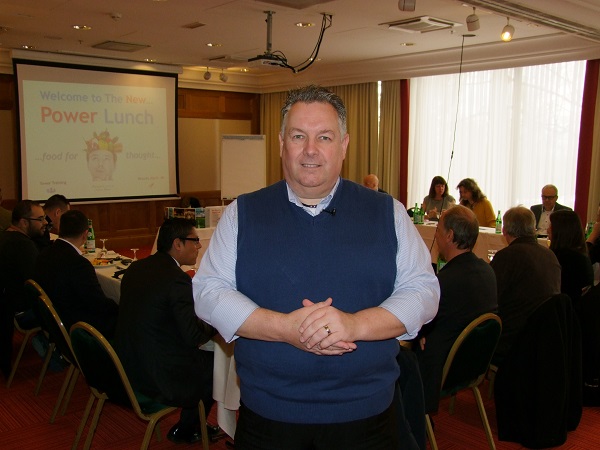
The issues of innovation and creativity can be viewed as thinking outside the box, embracing new ideas and applying them to business and one's private life.
By definition, we are creative creatures. Creativity can be explained as risk-taking; however, we are often averse to taking risk, explained David Holland. He went on to explain by way of anecodtes on how Silicon Valley, for example, has a more welcoming and innovative environment than other places, including Luxembourg.
In Europe, Venture Capital (VC) funding is normally only provided once a business is up-and-running, whereas in the US, in Silicon Valley, VC can be obtained (VCs on Strand Hill road) much earlier; one deal will cover one's costs and two deals will make a VC profit. The reason for the difference is that Europe is generally much more risk averse than Silicon Valley in the US.
He also reference Stanford University in the US, where with 4.7% of student applications are successful, meaning that graduates are in demand and are guaranteed jobs in Silicon Valley. Cambridge University in the UK is now starting to replicate this successful model by encouraging entrepreneurship and attracting VCs to the area.
Another difference between the US and Europe is vision - in the US entrepreneurs have a much longer vision, with Europeans generally hoping/expecting their ideas will kick off in just a few months. Also, many people in the US have a creative mindset and want to change the world. And education also leads to how we think, to think narrow and not necessarily outside the box.
He also referred to new businesses created from different mind-sets, including Tesla (worth USD 34.4 billion), AirBnB (worth USD 25.5 billion) and Uber (which has a capitalisation of USD 62.5 billion), as examples of new mind-sets seeing opportunities. In Europe, most companies operate frames of tolerance into which employees and directors must fall prior to being engaged - people outside those frames will not be considered; yet, it is generally people outside those frames that are the creative type, from which the new big projects are originating.
David also referenced Ian Wright who left Tesla to set up his own company to retro-fit electic engines in short-distance heavy-goods vehicles such as bin lorries; the pay-back comes with eight months.
He also explained that we are programmed to expect the negative. Returning to education, subjects such as mathematics, languages, science, sociology and economics are prioritised in schools as employers are looking for people with suck knowledge and skills, whereas subjects such as art, music, dance and sports are at the bottom on the list of subject priorities; yet, these subjects are ones where creativity is encouraged.
On applying a different mind-set to conventional problems, he illustrated the case study of a company in the US engaging a comedian to come with a novel idea to increase sales of Shreddies - he came up with the concept of Diamond Shreddies, a simple idea but looking at the issue from a non-convential perspective.
David Holland, author and motivational speaker, was talking at the Tower Power Lunch on Friday at the NH hotel in Luxembourg-Findel on The Power of Creativity. He engaged continuously with a group of around 30 attendees, repeatedly using personal anecdotes to illustrate the points he wanted to get across and, in so doing, kept it highly entertaining.
Photo by Geoff Thompson: David Holland, Results Rules OK & Tower Training









